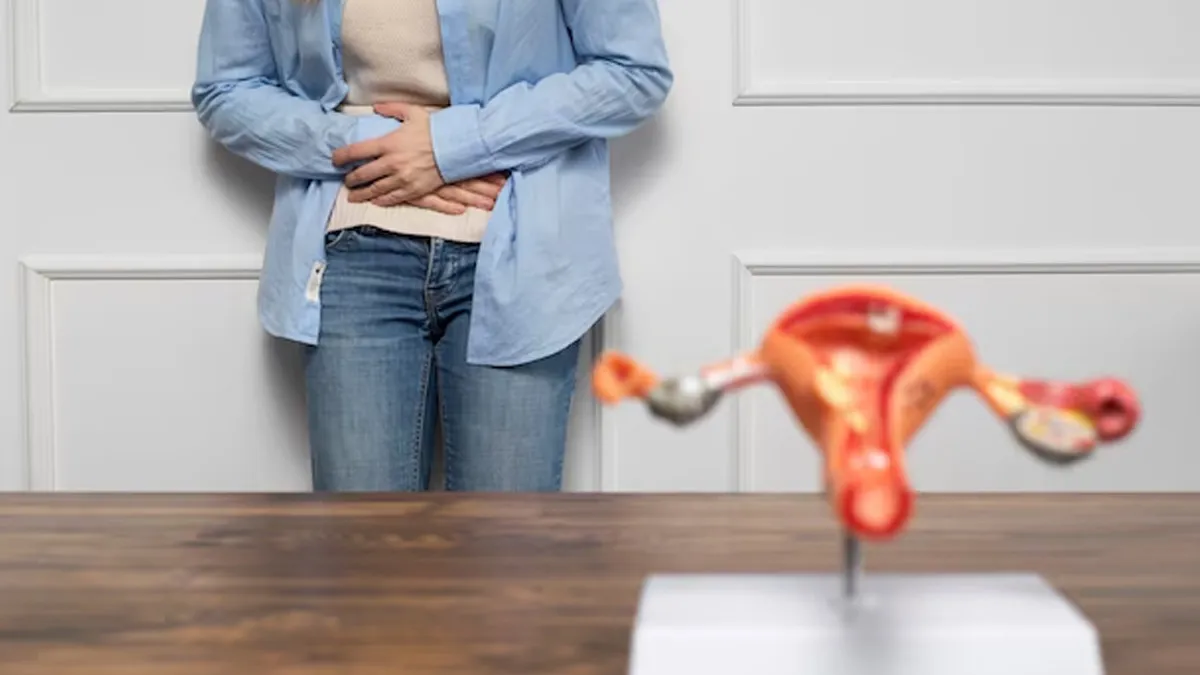
While menopause is a reproductive milestone that marks the end of the menstrual cycle, perimenopause is a phase leading up to menopause. It is a transitional phase wherein a woman's hormone levels start to decline, leading to symptoms like hot flashes and irregular periods. Additionally, some women in their perimenopausal stage also complain of experiencing digestive issues, such as constipation. To find out whether constipation is linked to perimenopause, the OnlyMyHealth team spoke Dr Rushali Nikhil Jadhav, Consultant—Obstetrics and Gynaecology, Manipal Hospital, Kharadi, Pune.
Table of Content:-
Also Read: From Menstruation To Menopause: Expert Explains Managing Seizures Across Life Stages
What Is Perimenopause?

Perimenopause is a stage leading up to menopause. While menopause is when a woman's periods stop completely, perimenopause is a time of transition, which stops when menopause hits. According to Cleveland Clinic, perimenopause can begin 8-10 years before menopause when the ovaries gradually produce less oestrogen.
Unlike menopause, pregnancy is still possible during perimenopause, and the World Health Organization (WHO) recommends contraception to avoid unintended pregnancy.
Menopause is said to have occurred after 12 consecutive months without menstruation, with no "obvious physiological or pathological cause."
Can Perimenopause Cause Constipation?

According to Dr Jadhav, constipation may occur from perimenopause-related digestive issues. Constipation is when you have infrequent, painful bowel movements, which involve dry, hard, or lumpy stools.
“Gut motility, or the movement of food through the digestive tract, can be impacted by hormonal changes during perimenopause,” said Dr Jadhav. This is because food passes slower through the digestive tract when oestrogen levels fall because the lining of the intestines becomes less flexible and the muscles around it lose tone.
Another aspect that contributes to constipation is progesterone; a decrease in this hormone can end up in slower contractions of the muscles of the colon.
Adding further, the doctor shared that higher levels of cortisol, a stress hormone, could also lead digestion to stall, which could in turn cause constipation.
How To Manage Constipation During Perimenopause

Perimenopausal constipation can be managed with a number of dietary and lifestyle changes. These include:
- Increasing fibre intake through fruits, vegetables, whole grains, and legumes to soften stools and encourage regular bowel movements.
- Drinking lots of water to maintain soft stools.
- Indulging in regular exercise, like yoga or walking, to enhance gastrointestinal motility.
- Using stress-reduction strategies like mindfulness or meditation.
However, if a woman has blood in her stool, significant abdominal pain, unexplained weight loss, or chronic constipation, she should consult a doctor, advised Dr Jadhav. He noted that it is important to see a doctor if constipation is accompanied by other worrisome symptoms, such as extreme exhaustion or changes in bowel habits, or if Over-The-Counter treatments don't work.
Also Read: From Mood Swings To Joint Pain: How Low Oestrogen Affects Your Body
Role Of Hormone Replacement Therapy (HRT)
Hormone Replacement Therapy (HRT) is a medical treatment used to relieve symptoms of menopause. It usually works by replacing declining hormones like oestrogen and progesterone, which is what usually leads to menopause-related symptoms.
According to Dr Jadhav, HRT can increase intestinal motility and decrease constipation by boosting the body's dwindling oestrogen levels. However, each person responds differently to HRT for constipation, so it's important to talk about the possible advantages and disadvantages with a medical expert, he added.
Conclusion
Perimenopause is a transitional stage that leads up to menopause. During this time, hormones like oestrogen and progesterone decline, leading to various symptoms, including hot flashes, irregular menstruation, vaginal dryness, mood swings, and more. Some people also report digestive issues, including constipation, which may require proper care and management. If the constipation is persistent and is accompanied by concerning symptoms, seeking medical help is advised.
Also watch this video
How we keep this article up to date:
We work with experts and keep a close eye on the latest in health and wellness. Whenever there is a new research or helpful information, we update our articles with accurate and useful advice.
Current Version